Shri Jetho Lalwani
It is a privilege to write about a glittering gem in the world of Sindhi, Gujarati and Hindi literature, Dr. Jetho Lalwani. A literary personality of great eminence, Dr. Lalwani is an accomplished theatre person, a fiction writer, an essayist, a critic, a journalist and a scholar in folk literature. His seminal work, ‘Sindhi Folk Songs of Banni’, a well-researched document on the subject fetched him a doctorate. His versatile and prolific writing career has seen him writing books and papers on almost every genre ranging from theatre, folk art, poetry, fiction to children’s literature. Equally conversant with Sindhi, Hindi and Gujarati, he has written 40 books in the Sindhi language on various subjects, 6 books in Gujarati and 7 in the Hindi language. He has also translated 17 books. A rare combination of creative brilliance and administrative intelligence, he has successfully held various positions at esteemed literary organisations. He is also a reviewer of the Ph.D. thesis at the universities of Mumbai, Ajmer and Gujarat in India and Sindh in Pakistan. As a critic and a folklorist, he has read scholarly papers at seminars in India and abroad. He convinced Gujarat Vidhyapeeth to introduce Sindhi subject in their language teaching curriculum and Gujarat University to offer Entire Sindhi subject at the graduate and postgraduate level. His work in the field of literature has been recognised with many awards that he has received from the government and literary organisations.
Despite his myriad achievements, he does not carry the cloak of arrogance on his shoulders. I was pleasantly taken aback and touched at his willingness and eagerness to help me in my blogsite on Sindhis and their culture in every way possible.
His seniors and peers have paid him fulsome compliments for his works and his dedication to the Sindhi language, literature and theatre. Some of them are as below:
- Shri Hiro Thakkur, an eminent Sindhi writer, opined on Dr. Lalwani’s seminal work, ’Sindhi Folk Songs of Banni’ – “It is the first of its kind in India, and unparalleled.”
- Shri Hasu Yaknik, a renowned educationist and folklorist, appreciating Dr. Lalwani’s deep study and profound knowledge of folk arts, said that Dr. Lalwani’s ‘Sindhi Sangeet and Bhagat’ was the best book in the Gujarati language.
- Shri Prem Prakash, a renowned Sindhi litterateur, said that Dr. Jetho Lalwani had never failed to serve the language and literature while working as an administrator in literary organisations, and had enthusiastically programmed and executed literary events as well as brought out wonderful publications.
- According to Late Shri Govind Malhi, Shri Lalwani is a multi-faceted personality and is one of very few literary giants who had contributed their seminal, constructive research work to Sindhi literature.
- Late Shri Kirat Babani, the noted Sindhi writer and activist, appreciated that Dr. Lalwani worked enthusiastically for the Sindhi community through literature.
- Shri Murlidhar Jetley, a distinguished Sindhi writer and critic, says, “Jetho Lalwani is very industrious, and can work successfully in any position. He has expressed himself in every genre of Sindhi literature, and remarkably contributed to the art of translation as well.”
- Late Ms. Popati Hiranandani, a renowned Sindhi writer, said that Dr. Lalwani was a gifted writer; his writings were full of sobriety.
- About Dr. Lalwani’s rare administrative abilities, Shri Vasdev Mohi, a distinguished Sindhi litterateur, says, “ Jetho Lalwani is like a fire brigade, as he intuitively feels the emergency, reaches to it within no time and handles it spiritedly.”
- Madan Jumani, a celebrated artist, said,” Jetho Lalwani has been working relentlessly and toiling for Sindhi language, literature and theatre. “
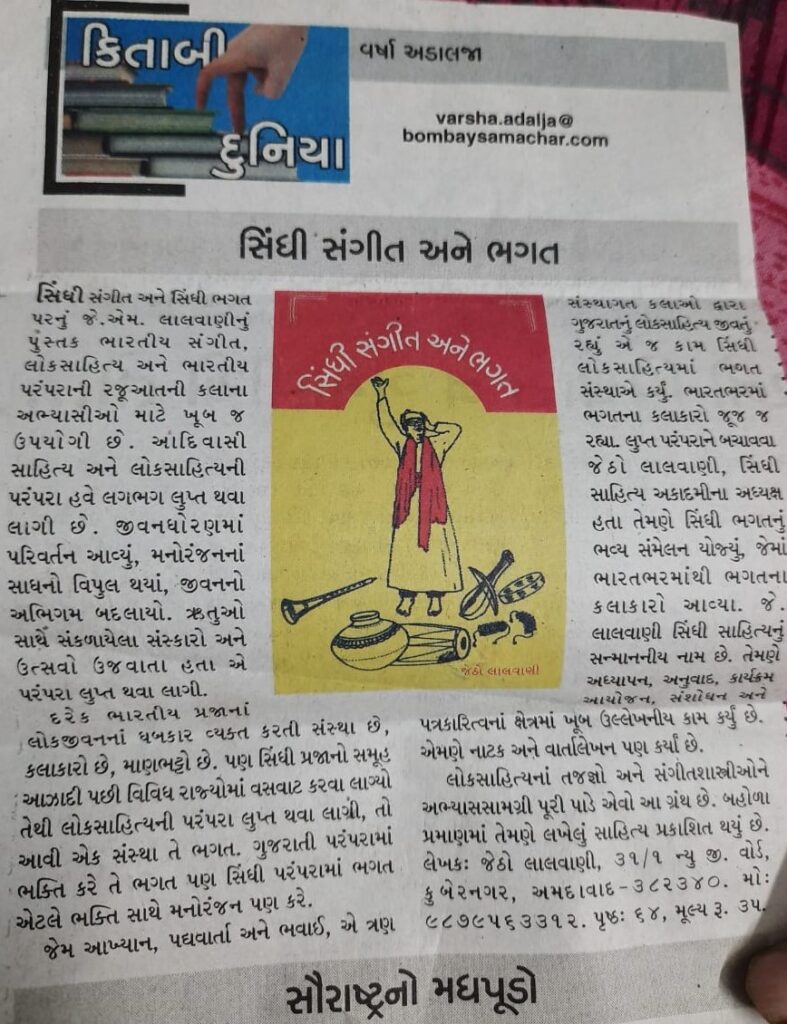
I have included a complete list of his literary works as well as the awards conferred on him at the end of this article.
His candid conversation with me about his life and the beginning of his literary journey is transcribed below.
My Family
“I was born at Kandiyaro in the Nawab Shah district of Sahiti taluka, Sindh on 8th May 1945. My ancestors had lands and orchards in Sindh.
My father had 4 siblings, three of which, along with my father were landlords and looked after our farms and orchards. The fifth sibling, Shri Govindram, and his son had a cotton ginning factory in Karachi. The five brothers and their families lived together.
We left our homeland, Sindh, due to the looting and violence during the partition of India in 1947.”
Post-Partition
“We came to Pali, Marwar in Rajasthan by the train run by the Maharaja of Jodhpur. My uncles proceeded to Ahmedabad, Gujarat while my father decided to go to Indore as my maternal uncles were settled there. We lived in Bhanwarkuwa Colony, now renamed as Bhagat Kanwarram Colony, in Indore. For lack of any income, my father worked as a mason for a couple of months, before he started selling fruits on the pavement.
My paternal grandmother insisted that the five brothers live together in Ahmedabad as they had already got houses against the properties that were left behind in Sindh. In Ahmedabad, the family started a mill, Jai Hind Masala Factory at Dilli Darwaza, for grinding powders and masalas from coriander seeds, red chillies, etc. They soon bought another factory which was closeby, Satyanarayan Masala Factory, and thus became the masala kings of the city.
Jai Hind Masala Factory had to be sold as it was to be demolished by the Municipality for road enhancement. My cousin still runs the Satyanarayan Masala Factory at Dilli Darwaza at Ahmedabad.”
4. SINDHI BHAGAT PARAMPARA 5. HISTORY OF SINDHI THEATRE 6. SHAHID HEMU KALANI 7. GOVIND MAALHI -THE FATHER OF INDIAN LITERATURE 8. ESSAYS ON SINDHI LITERATURE
My Education and the Beginning of my Literary Journey
“I studied Bal Mandir (Kindergarten) at Indore, in Sindhi Primary school, Ahmedabad, till 5th standard and completed my old SSC (11th standard) at Mahatma Gandhi High School, Kubernagar, Ahmedabad. I studied for six months in the Science stream at Talod, Gujarat and the remaining six months at St. Xaviers College, Ahmedabad. I studied for the Inter (FY BSc) at M G Science College and got admission at B J Medical College, Civil Hospital, Ahmedabad for the medical degree of MBBS.
Meanwhile, my father fell ill and passed away. Our partner in the business betrayed the family and the factory had to be sealed. In light of these circumstances, I gave up my studies after the second year at the medical college and started working to earn for the family.
I continued my studies through distance learning and did my BA in Hindi Literature from Osmania University, Hyderabad. My Vishaarad ( a degree offered by Hindi Sahitya Sammelan) in Hindi language got me admission in MA in Hindi Literature at Mysore University. I did my Ph.D. at Bombay University and my subject was ‘Banniye ja Sindhi Lok Geet’( Sindhi folk songs of the people of Banni region in Kutch, Gujarat). I also did my Diploma in Library Science from Ahmedabad.
I started writing and acting in plays from my school days. Our teacher, Shri Ramchand Bhagchandani Gyan, at Mahatma Gandhi High School, encouraged us to perform in annual school functions. He gave us information about Sindhi literature. I was the editor of the school magazine, Hans, and looked after the contributions of the wall magazine, in which hand-written articles, stories or poems were put up on the soft board. I also managed the class library, where my appetite for reading was whetted. I loved reading right from childhood as my father, being an avid reader himself, had subscribed to several magazines and newspapers.
My father had visited Sindh in the year 1962 – 63 and bought many Sindhi books which I had access to.
I started my writing with poetry. I still remember my first poem:
Chave kerto aaye nashaad Bharat
Mukhe fakre aye aahe azad Bharat
Translation: Who says India is a slave; I am proud that India is free.
This poem was published in the magazine, Hindwasi, of Mumbai.
I was good at writing essays in school and scored well on them.
In B J Medical College, I edited its annual magazine. I sent an article on ‘Kali’ (a bud) for an Inter Medical College competition, which fetched me the first prize.
We had made an association of the college students of all the streams of Ahmedabad for the promotion of the Sindhi language in the year 1966-67. I was the editor of the magazine of the association.
We started a film magazine called ‘Kali’ since the youngsters then were crazy about films and film stars. I used to interview the actors that visited Ahmedabad in those days and publish them in the magazine. The magazine became popular among the college students as it featured Sindhi and Hindi films and performers.
My friends encouraged me to write stories and my first book was ‘Manjian ja Dhundhla Aks’ (Blurred Memories from the Past) which had stories based on my experiences in medical college.
This started my writing journey and I wrote for many newspapers and magazines. My main liking was for theatre as I was an artist at heart. I was an approved artist on the radio too. From reading and acting in plays, I moved on to writing plays.”
Some More Information on Dr. Jetho Lalwani
- Visited Sindh six times
- Attended International Literary seminars and presented research papers on various subjects
- Published a travelogue on Sindh
- PhD reviewer at the following Sindh universities: (a) Vafaqi Urdu University of Arts and Science Technology, Karachi, Sindh (b) Board of Advanced Studies and Research University, Karachi (c) Federal Urdu University , Islamabad/Karachi (d) University of Sindh, Jamshero (e) Shah Abdul Latif university of Khairpur (f) Allama Iqbal Open University Indian Universities: (a) University of Mumbai (b) Maharishi Dayanand University of Ajmer
- On board of Sindhi Studies as a subject expert: (a) University of Mumbai (b) University of Gujarat (c) University of Baroda (M S University)
- Research guide at Gujarat Vidyapith, Ahmedabad
- Graduation and post graduation exam paper setter at (a) Gujarat University, Ahmedabad (b) M S University, Baroda (c) Dr. Rammanohar Lohiya Avadh University, Ayodhya
- Sindhi Films written and acted in: (a) Jai Jhulelal (b) Vataya Fakir (c) Pyar ja Rang (d) Sasu Sau Nuhan Sawasau (screenplay)
- On advisory committee and a member of Sindhi language expert committee of the following Research Journals (a) Shah Abdul Latif Bhitai Chair, Karachi University – ‘Karachi’ Research Journal (b) Shah Abdul Latif University, Khairpur – ‘Bhitai’ Research Journal (c) Sindh language Authority, Hyderabad – ‘Sindh Boli’ Research Journal (d) Sindh University, Jamshoro -‘ Kinjhar’ Research Journal
- Documentary on Life and Work of Dr. Jetho Lalwani on YouTube by Govind Malhi Sindhi Academy
- Special interview on Banni- Kutch region regarding Sindhi folklore posted on the website of Sindhi language Authority, Hyderabad
- Shri Murli Bhojwani has written abook on the life and works of Dr. Jetho Lalwani.
- Dr. Roshan Golwani wrote on the life and works of Dr. Jetho Lalwani as his doctorate thesis.
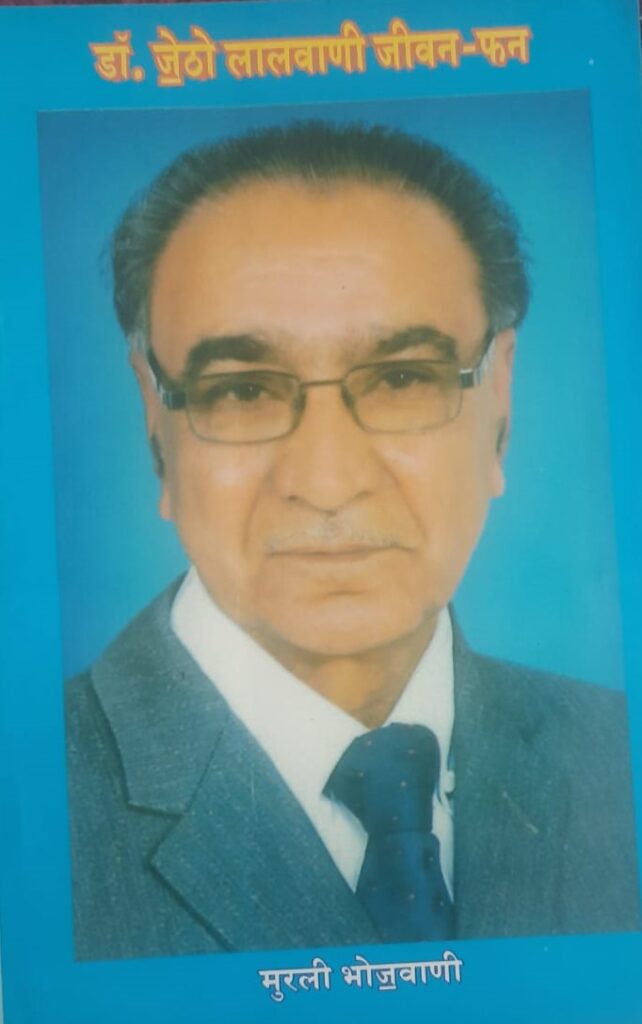
email:jetholalwani@gmail.com
website: www.jetholalwani.com
Personal Account of Dr. Jetho Lalwani
Featured Image: Dr. Jetho Lalwani
Jyoti Mulchandani
Ahmedabad
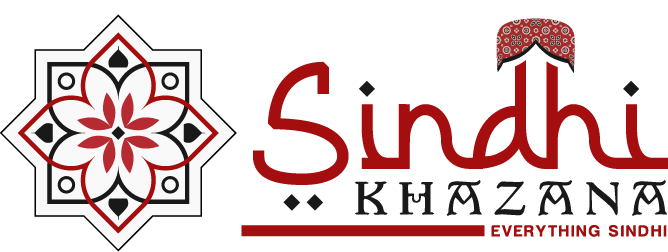
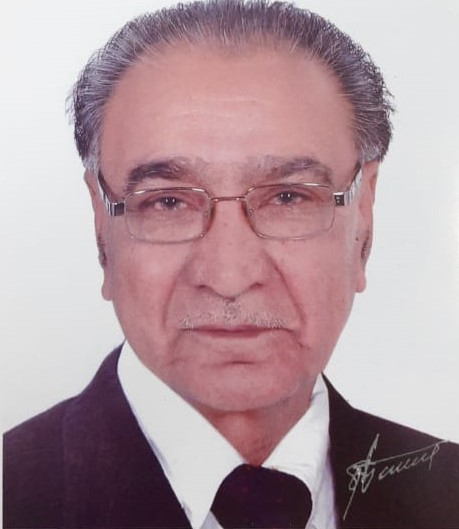
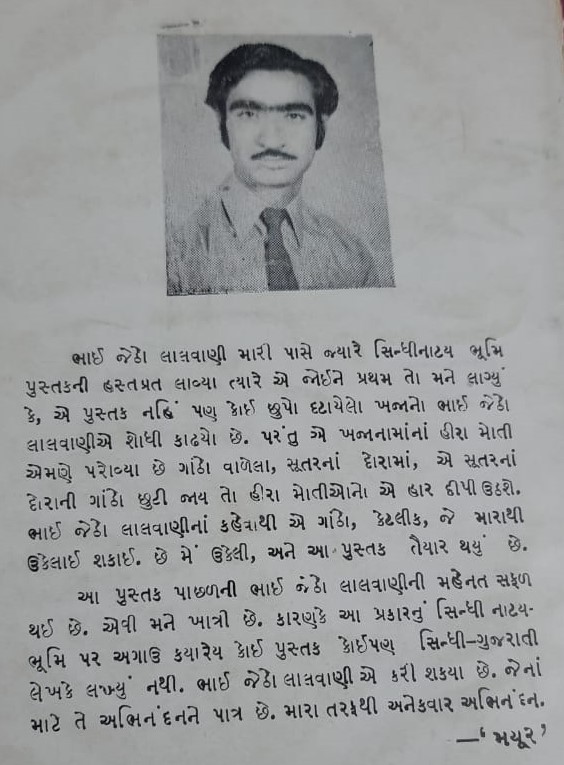
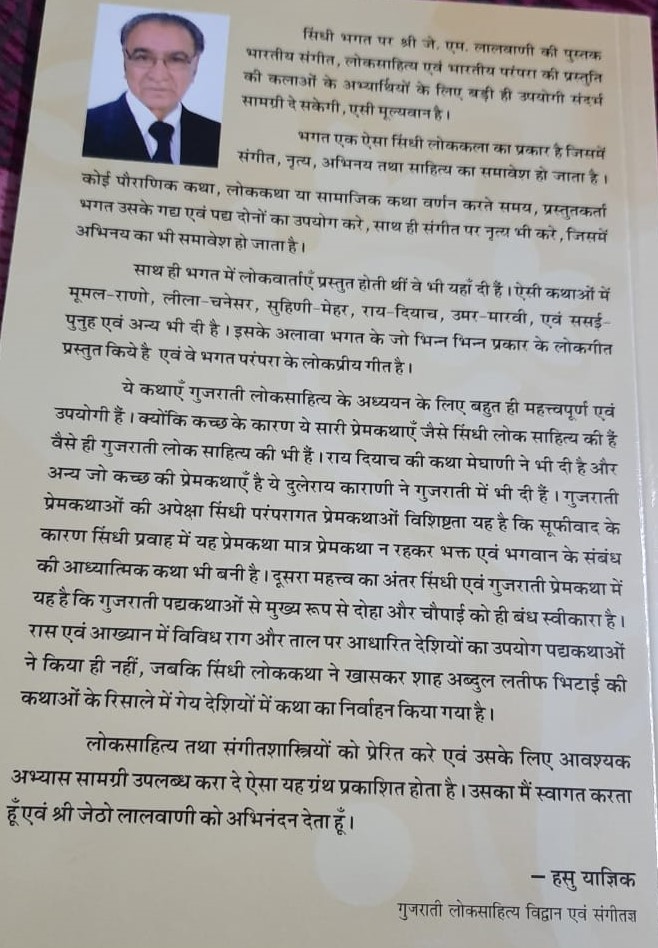
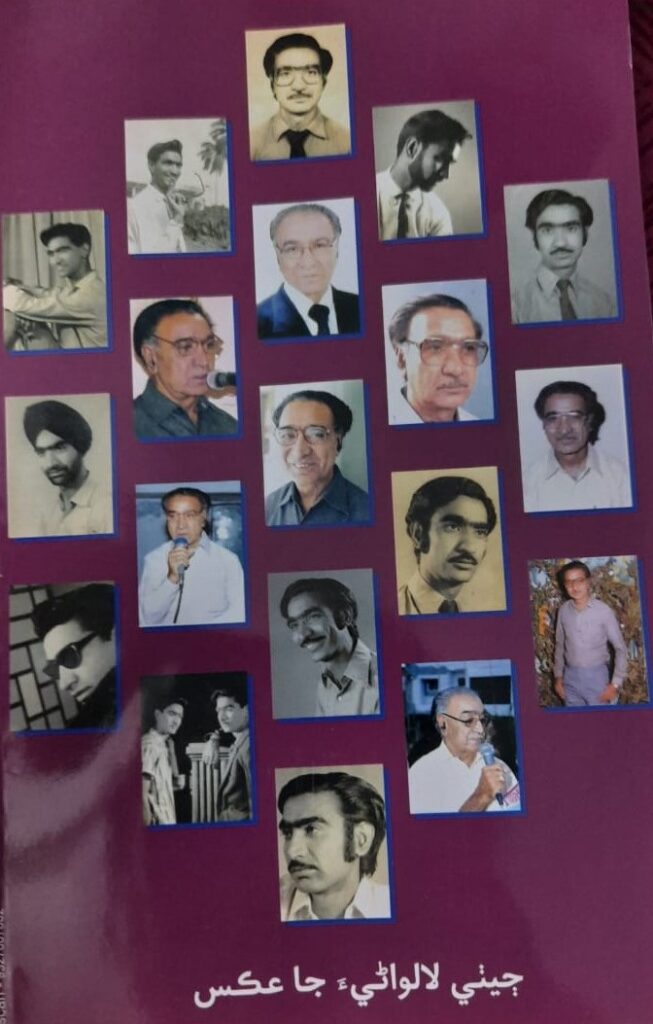
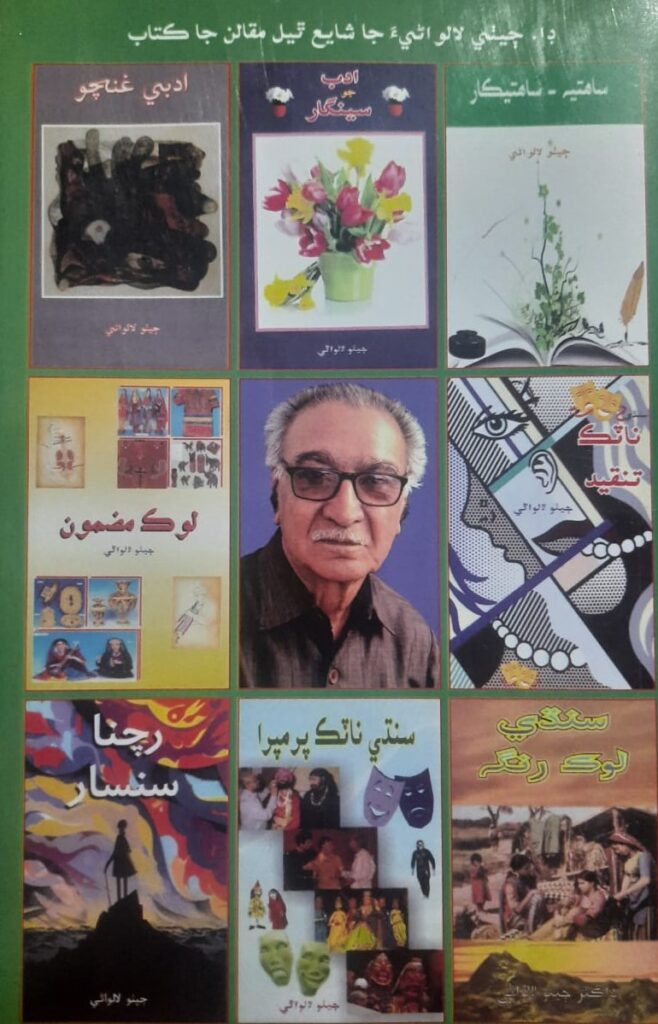
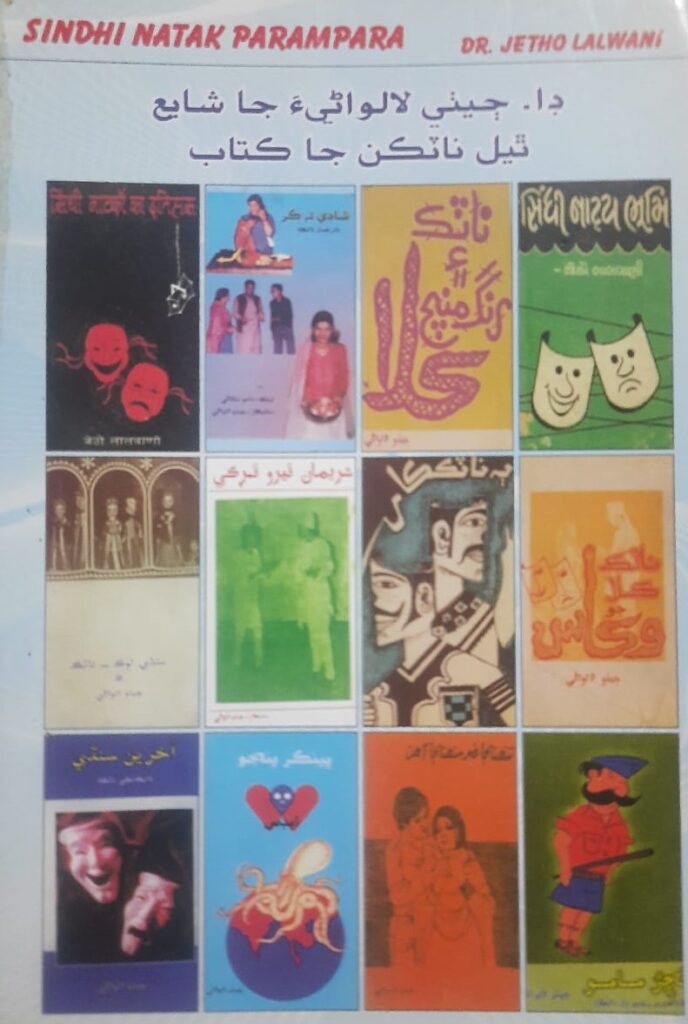
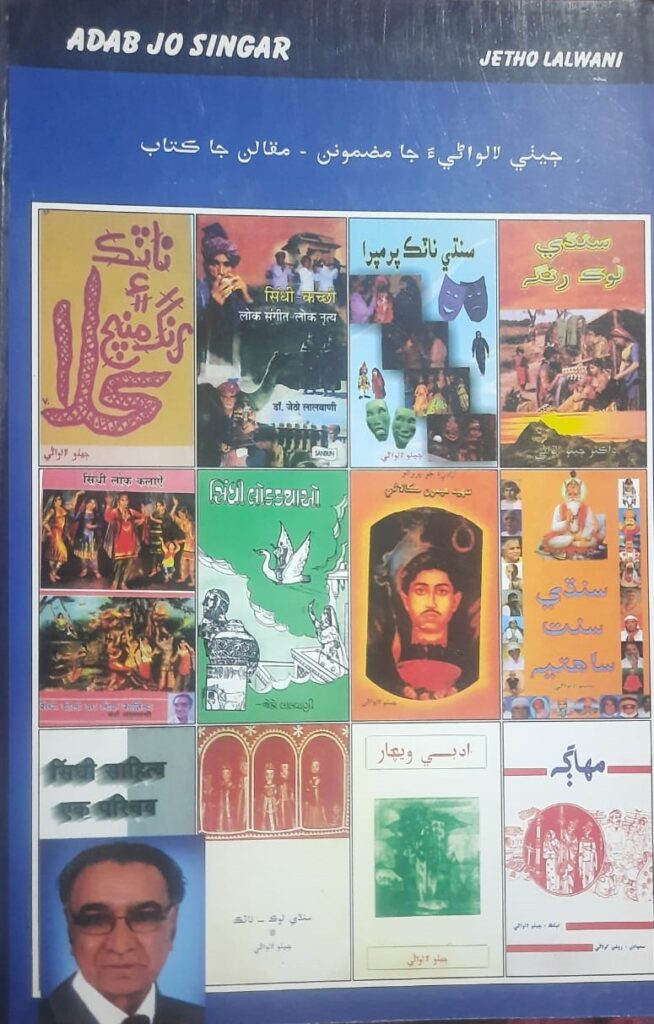
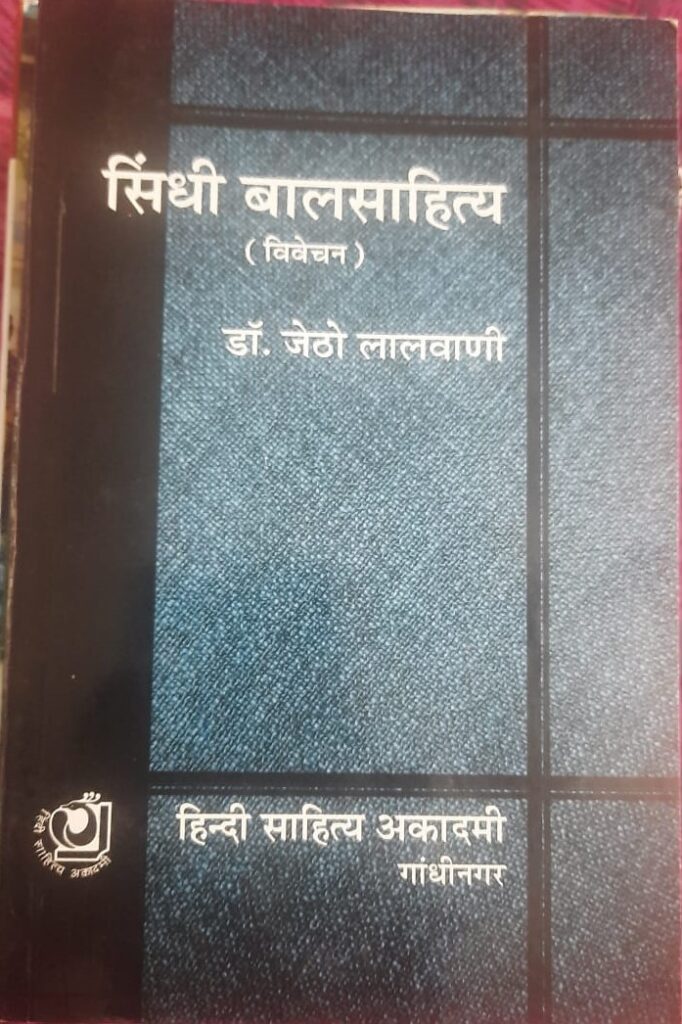
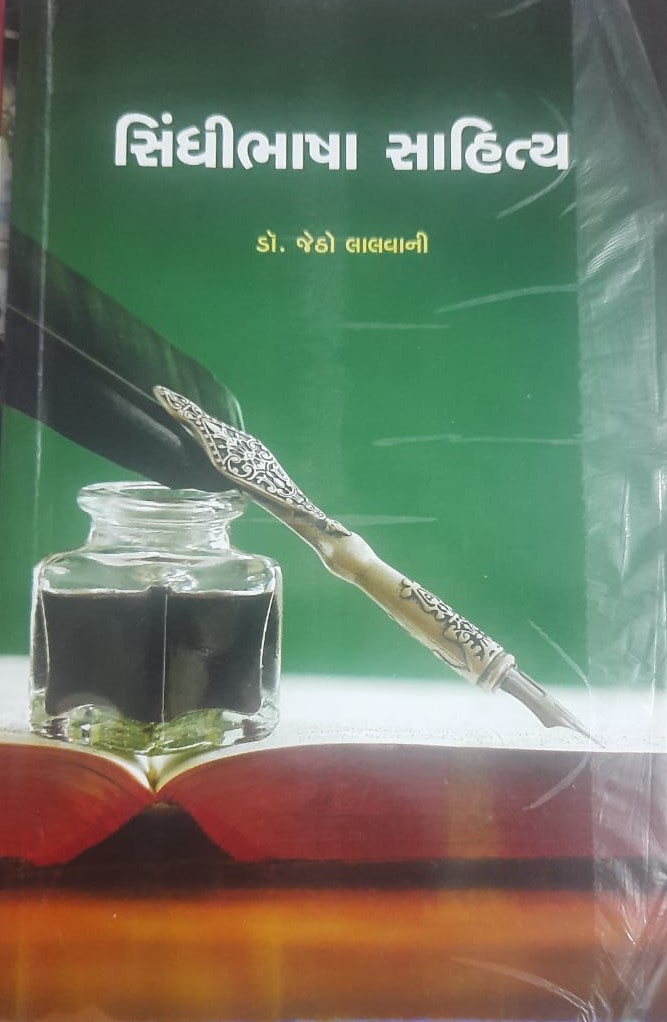
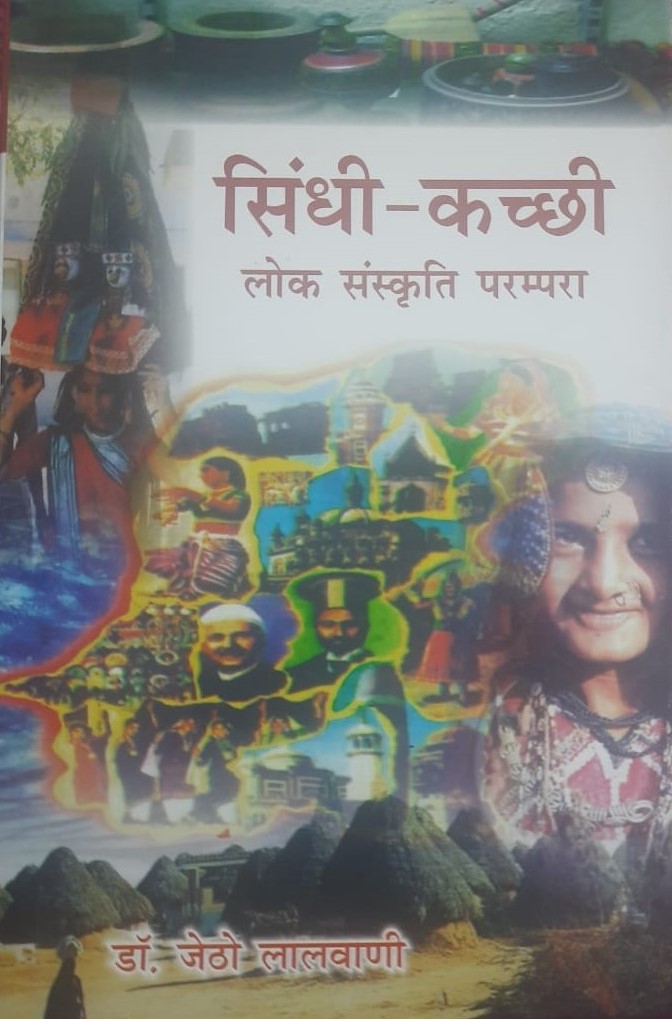
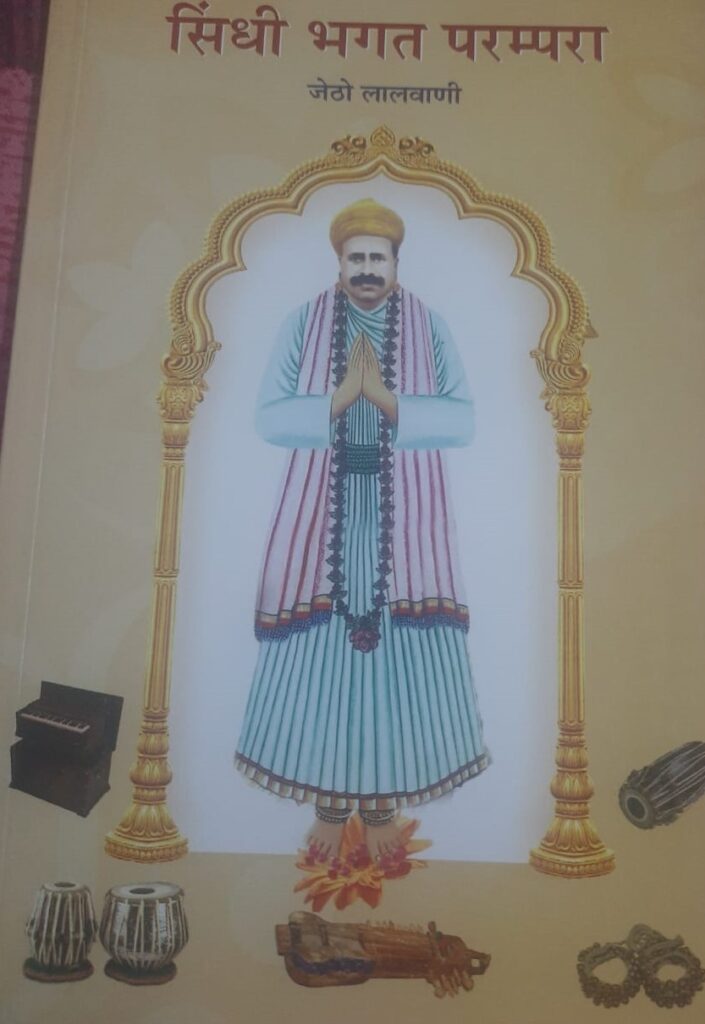
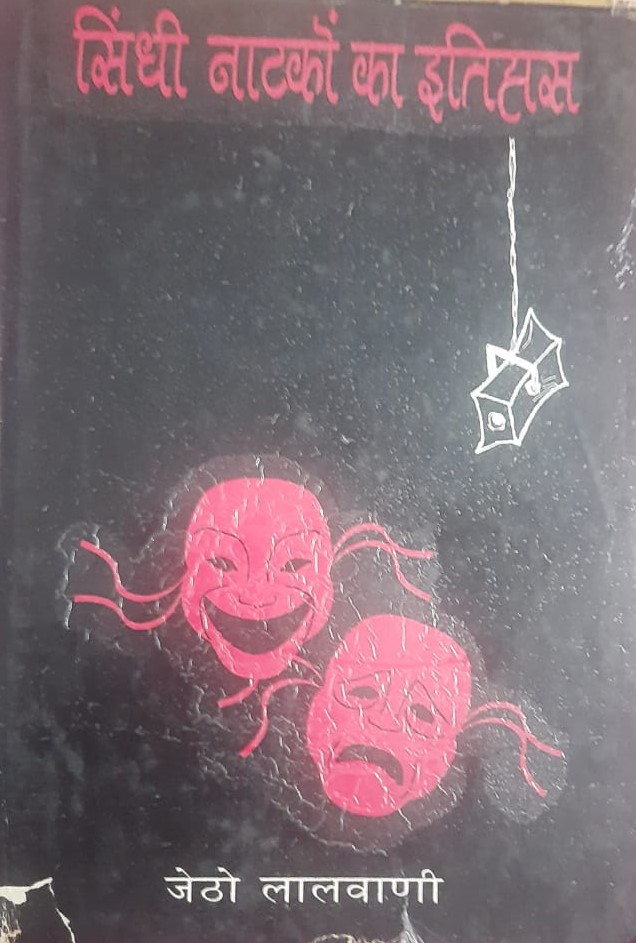
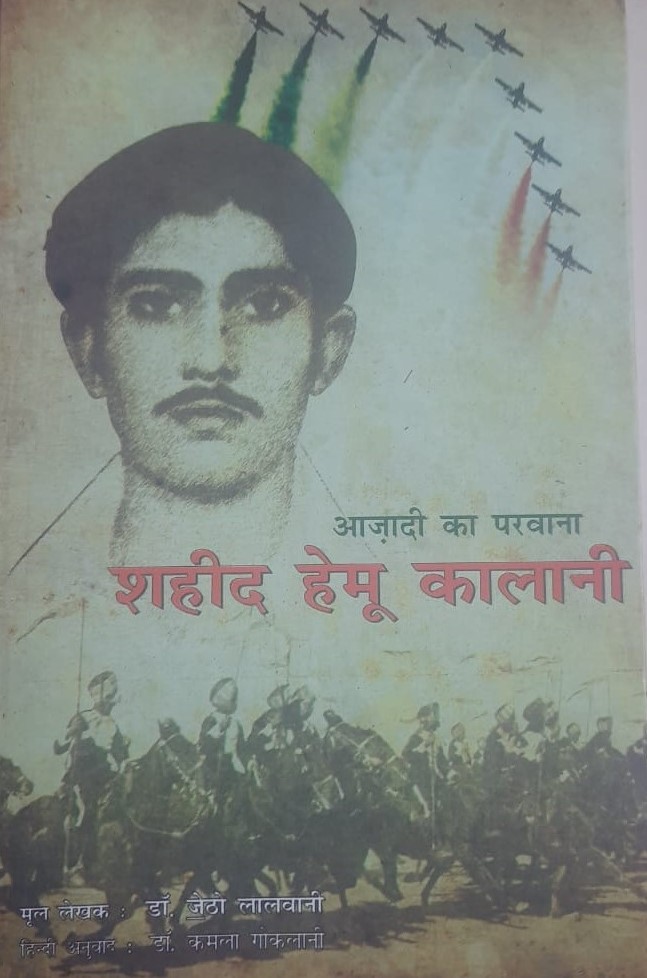
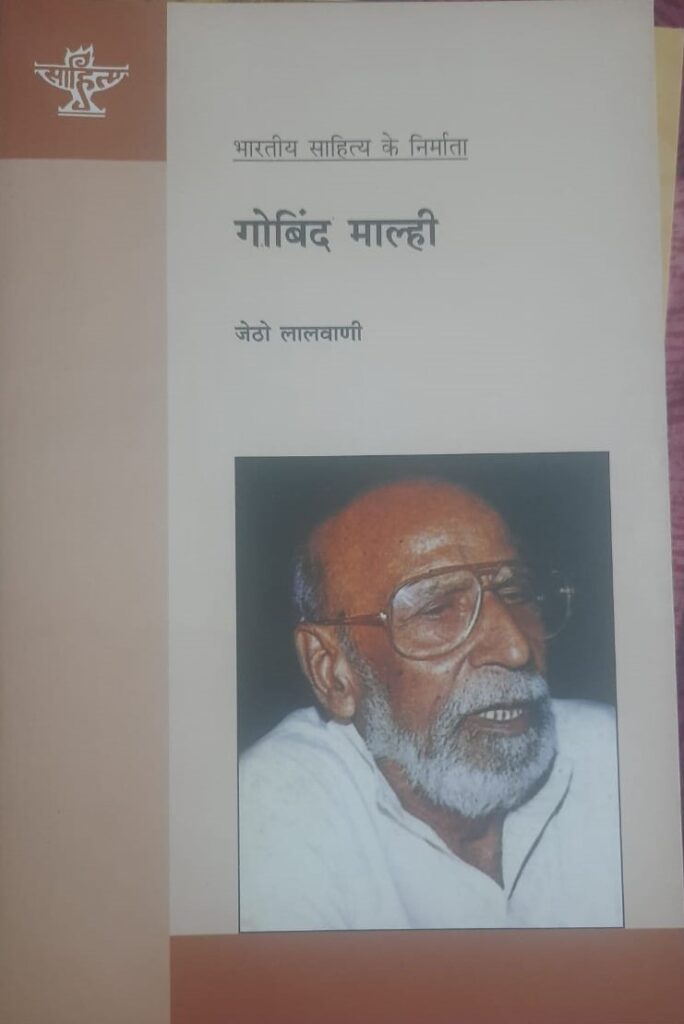
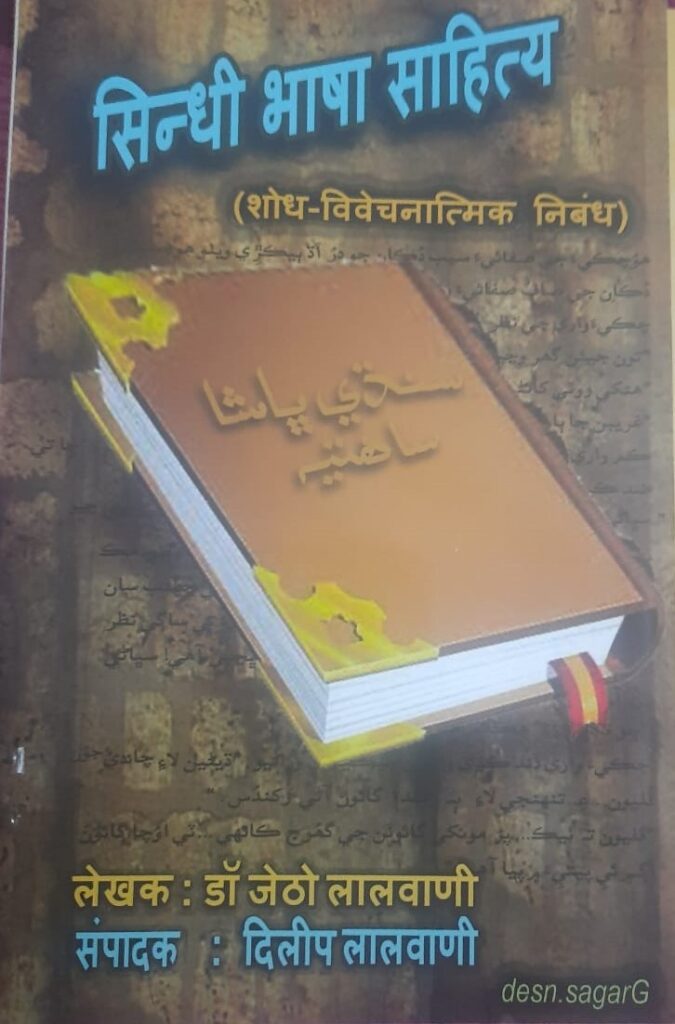
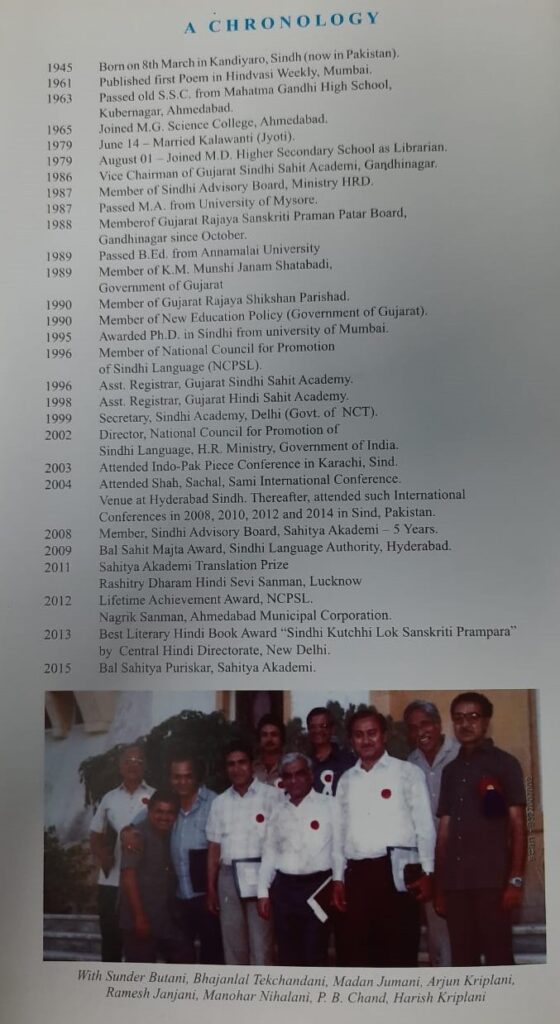
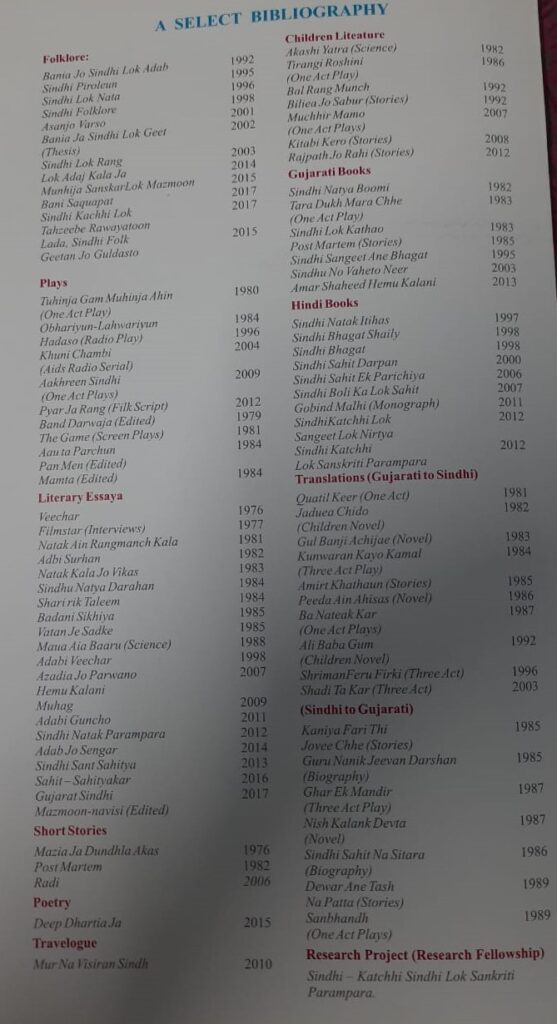
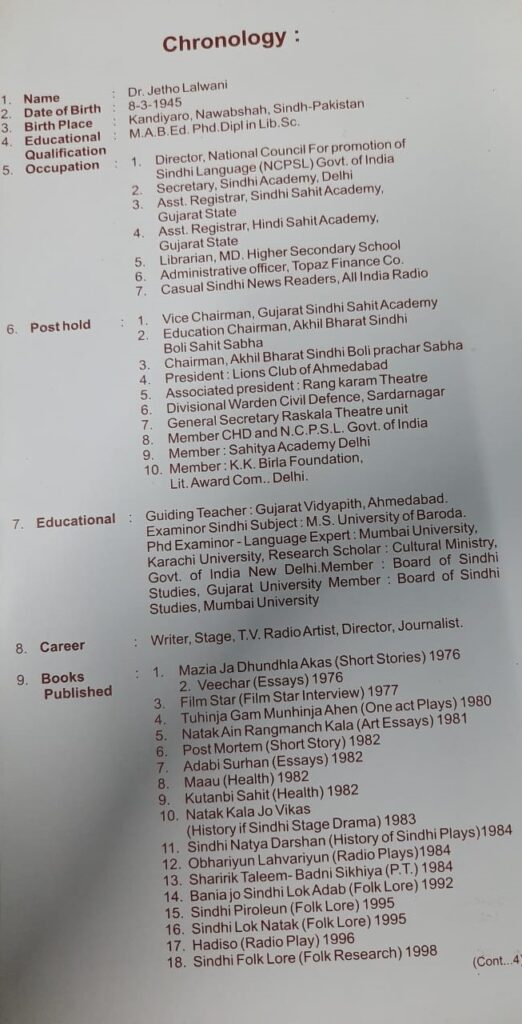
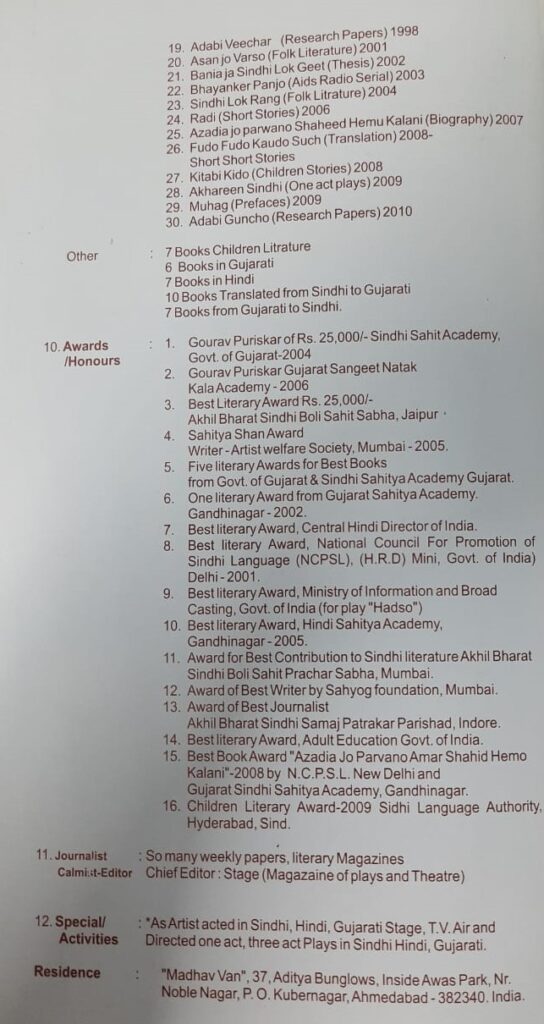
Give a Reply